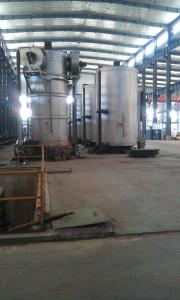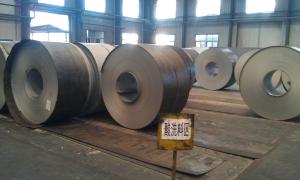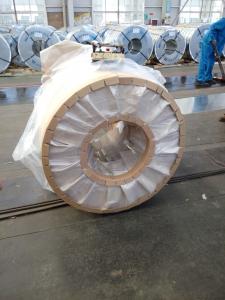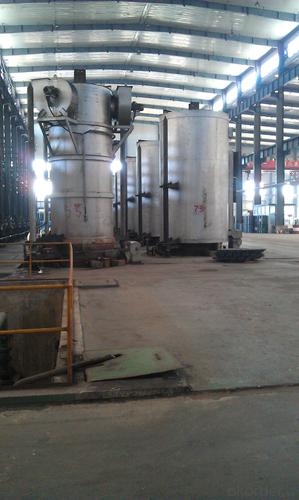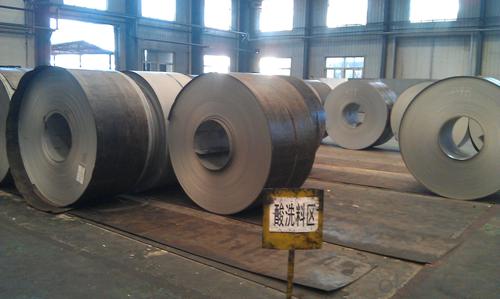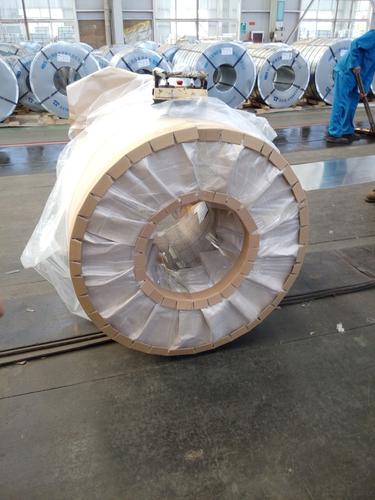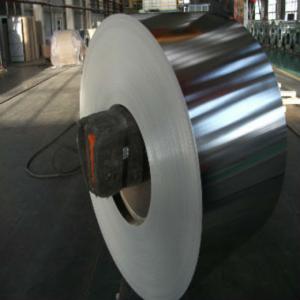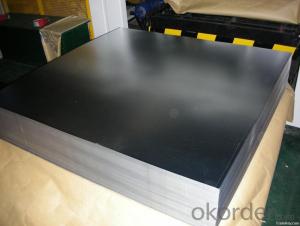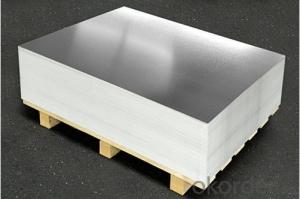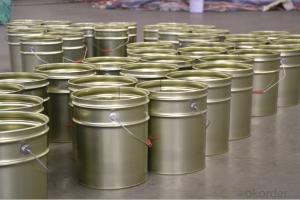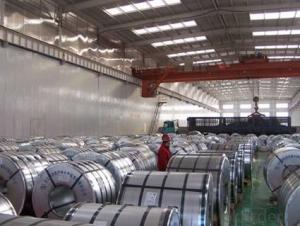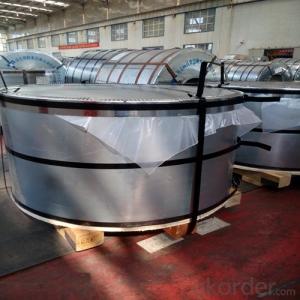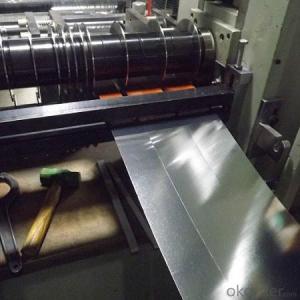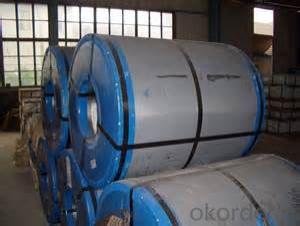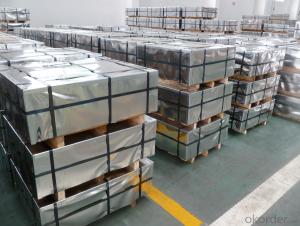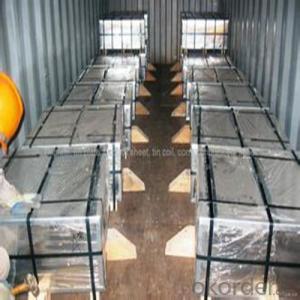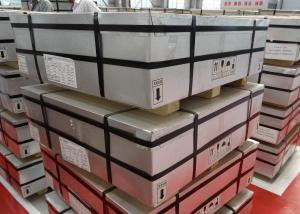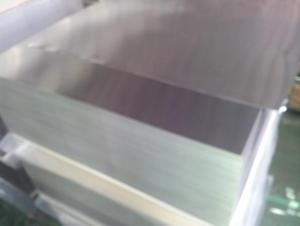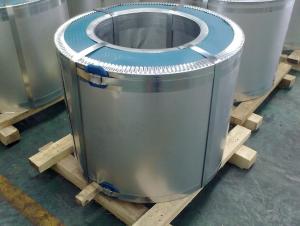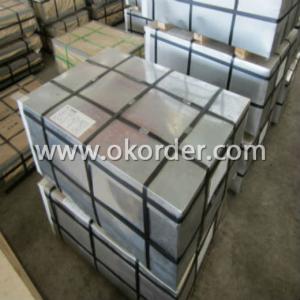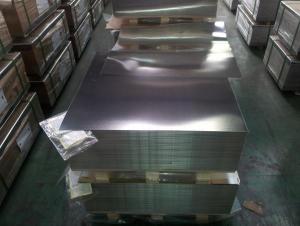Electrolytic Tinplate of Prime Quality for Useage of Chemical or Industrial Package
- Loading Port:
- Tianjin
- Payment Terms:
- TT OR LC
- Min Order Qty:
- 50 m.t.
- Supply Capability:
- 30000 m.t./month
OKorder Service Pledge
OKorder Financial Service
You Might Also Like
Specification
1.Structure of Electrolytic Tinplate of Prime Quality for Useage of Chemical or Industrial Package Description
Electrolytic Tinplate undoubtedly enjoys the pride of place as a packaging medium especially for food. It owes its unique position to its "nine layer sandwich structure", each of which contributes to its eminence as a packing material. The steel base of electrolytic tinplate provides the necessary strength and formability for can fabrication. The tin-iron alloy layer provides the bond between the steel and free tin layer. The free tin layer is not only responsible for the attractive bright finish and ease of solderability but is also non-toxic- a factor of vital importance in food packaging!
2.Main Features of the Electrolytic Tinplate of Prime Quality for Useage of Chemical or Industrial Package
Type MR – These base steels are low in residual elements and have good corrosion resistance properties. These steels are widely used in general applications
Type L – In this type the base steel has extremely low residual elements (Cu, Ni, Co and Mo). These steels have very good corrosion resistance to certain types of food products.
Type D – In D type aluminum killed base steel is used. These types are used in applications involving deep drawing or other types of severe forming that tend to give rise to Lueder’s lines.
3.Electrolytic Tinplate of Prime Quality for Useage of Chemical or Industrial Package Images
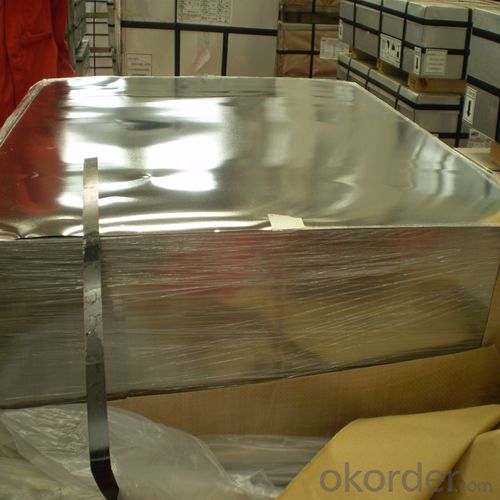
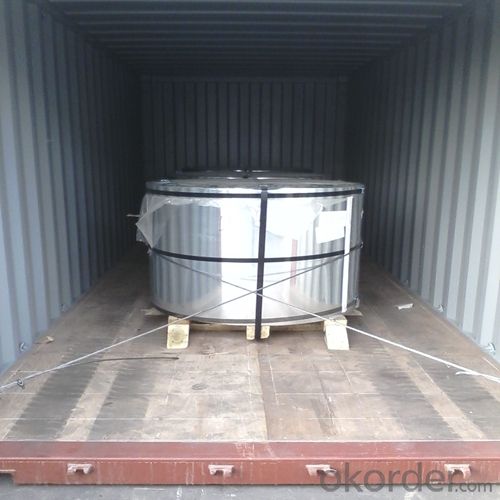
4.Electrolytic Tinplate of Prime Quality for Useage of Chemical or Industrial Package Specification
Specification of :
Standard: ISO 11949 -1995, GB/T2520-2000,JIS G3303,ASTM A623, BS EN 10202
Material: MR,SPCC
Thickness:0.15mm - 0.50mm
Width: 600mm -1150mm
Temper: T1-T5
Annealing: BA & CA
Coil Inner Diameter: 508mm
Weight: 6-10 tons/coil 1~1.7 tons/sheets bundle
Passivation:311
Oil: DOS
Surface: Finish,bright,stone,matte,silver
5.FAQ of Electrolytic Tinplate of Prime Quality for Useage of Chemical or Industrial Package
- What is tinning and how does it work?
Tinning is the process of thinly coating sheets of wrought iron or steel with tin, and the resulting product is known as tinplate. It is most often used to prevent rust.
- Do you only have prime quality tinplate?
We can supply both prime and second quality tinplate.
- Q: How does tinplate perform in terms of resistance to humidity?
- Tinplate performs exceptionally well in terms of resistance to humidity. The tin coating applied to the steel substrate creates a barrier that prevents moisture from corroding the underlying metal. This makes tinplate highly resistant to the damaging effects of high humidity, ensuring its durability and longevity in various applications.
- Q: What are the different types of tinplate?
- There are generally three types of tinplate: Single Reduced (SR), Double Reduced (DR), and Electrolytic Tinplate (ETP).
- Q: What are the common uses of tinplate?
- Tinplate has various common uses, including the production of food cans, beverage cans, aerosol cans, and metal packaging for cosmetics and pharmaceuticals. It is also commonly used in the manufacturing of electrical components, such as battery casings and electronic enclosures. Additionally, tinplate is employed in the construction industry for applications like roofing, cladding, and ductwork due to its corrosion resistance and durability.
- Q: What are the welding methods used for tinplate?
- The welding methods commonly used for tinplate include spot welding, resistance welding, and laser welding.
- Q: What are the potential health risks associated with tinplate packaging?
- Potential health risks associated with tinplate packaging include the possibility of contamination from lead, which can be harmful if ingested, as well as the risk of bisphenol A (BPA) leaching into food or beverages, potentially disrupting hormone function. Additionally, there is a concern that the coating inside tinplate cans may contain harmful chemicals that could migrate into the contents.
- Q: How to quickly open the bottle?
- A tin can be opened, the handle is separated, and the canned fruit can be clamped by the head, and the rotating knob and the tin can be opened. Remember, when you turn the knob, you can only rotate clockwise and turn counterclockwise clockwise.
- Q: Can tinplate be used for hazardous material packaging?
- Yes, tinplate can be used for hazardous material packaging. Tinplate is a durable and corrosion-resistant material that can effectively contain and protect hazardous substances. Its ability to withstand pressure, temperature variations, and chemical reactions makes it suitable for packaging hazardous materials. Additionally, tinplate is often used for food and beverage containers, which require stringent safety standards, further supporting its suitability for hazardous material packaging.
- Q: Can tinplate be used for packaging personal care products?
- Yes, tinplate can be used for packaging personal care products. Tinplate is a commonly used material in the packaging industry due to its durability, corrosion resistance, and ability to maintain product quality and freshness. Its versatility makes it suitable for various types of products, including personal care items.
- Q: What are the common testing methods for tinplate?
- Some common testing methods for tinplate include visual inspection, thickness measurement, adhesion testing, corrosion resistance testing, and tensile strength testing.
- Q: What are the main factors influencing the growth of the tinplate market?
- The main factors influencing the growth of the tinplate market include the increasing demand for packaged food and beverages, growth in the industrial sector, rising urbanization, and technological advancements in tinplate manufacturing. Additionally, the shift towards sustainable and recyclable packaging materials is also driving the growth of the tinplate market.
Send your message to us
Electrolytic Tinplate of Prime Quality for Useage of Chemical or Industrial Package
- Loading Port:
- Tianjin
- Payment Terms:
- TT OR LC
- Min Order Qty:
- 50 m.t.
- Supply Capability:
- 30000 m.t./month
OKorder Service Pledge
OKorder Financial Service
Similar products
Hot products
Hot Searches
Related keywords
